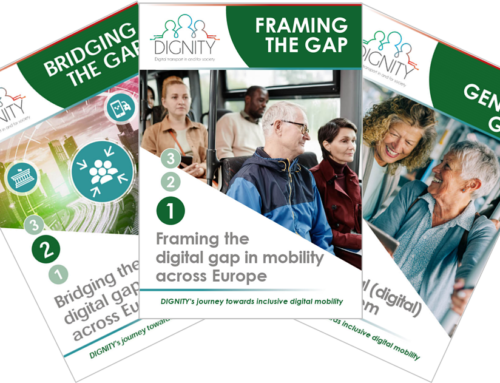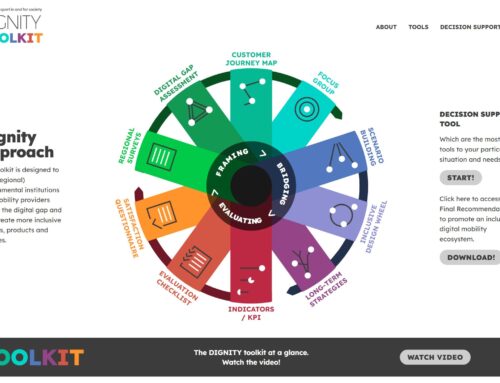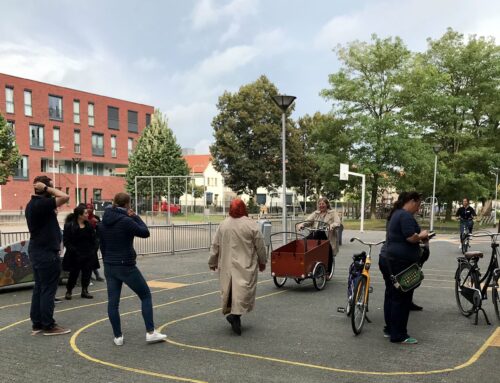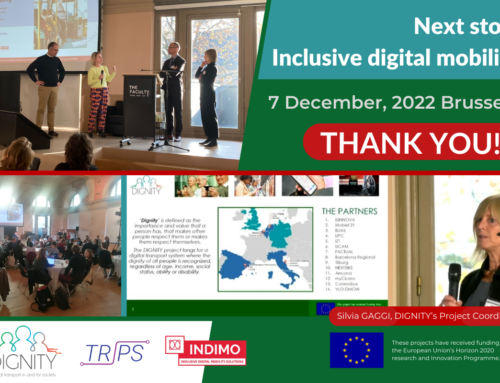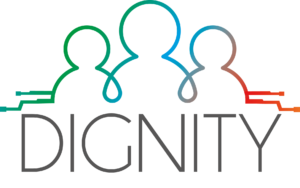Understanding travel patterns to improve DRT booking and last-mile services for the Can Palet area
The pilots are working hard on finding the best solutions for the inclusive design of digital travel systems!
A vital part of DIGNITY’s approach to frame and bridge the digital gap in the use of public transport is the promotion of co-design workshops, which aim to influence the development of accessible and user-friendly digital solutions by sitting at the same table digital services developers, local public transport representatives and end users (in particular citizens belonging to vulnerable groups).
Following the successful co-design workshop that took place in the Tilburg Pilot during October 2021, also the Barcelona Pilot organized its co-design workshop in February 2022 at the Can Palet de Vista Alegre neighbourhood. The meeting pulled together representatives from Barcelona Regional (local public agency investigating the development of a MaaS platform), from the Universitat Politécnica de Catalunya (higher education institute specialised in the fields of architecture, engineering and technology) and a delegation from the Can Palet local neighbourhood association.

The venue was a strategic one in terms of population profile and of transport networks available:
Can Palet is a low-density residential area located in the periphery of Terrassa (Metropolitan area of Barcelona), with an important percentage of older people and low-income population. The only public transport service is a DRT (Demand-responsive transport) bus line which has to be booked through an app or a telephone operator.
The DRT is a common solution for areas with low passenger demand – where a regular bus service is not considered to be financially viable – but it requires a booking procedure that can be dauting and challenging for certain user groups, such as the elderly and those with limited digital access.
Under the strategic guidance of Carol Vega (consultant at the Barcelona-based FACTUAL innovation boutique, also partner of DIGNITY), the workshop started off by stimulating citizen interaction to identify and understand travel patterns, in terms of which modes of transport they use, the frequency of their trips but also which challenges they face in planning their travel and what their everyday needs are.
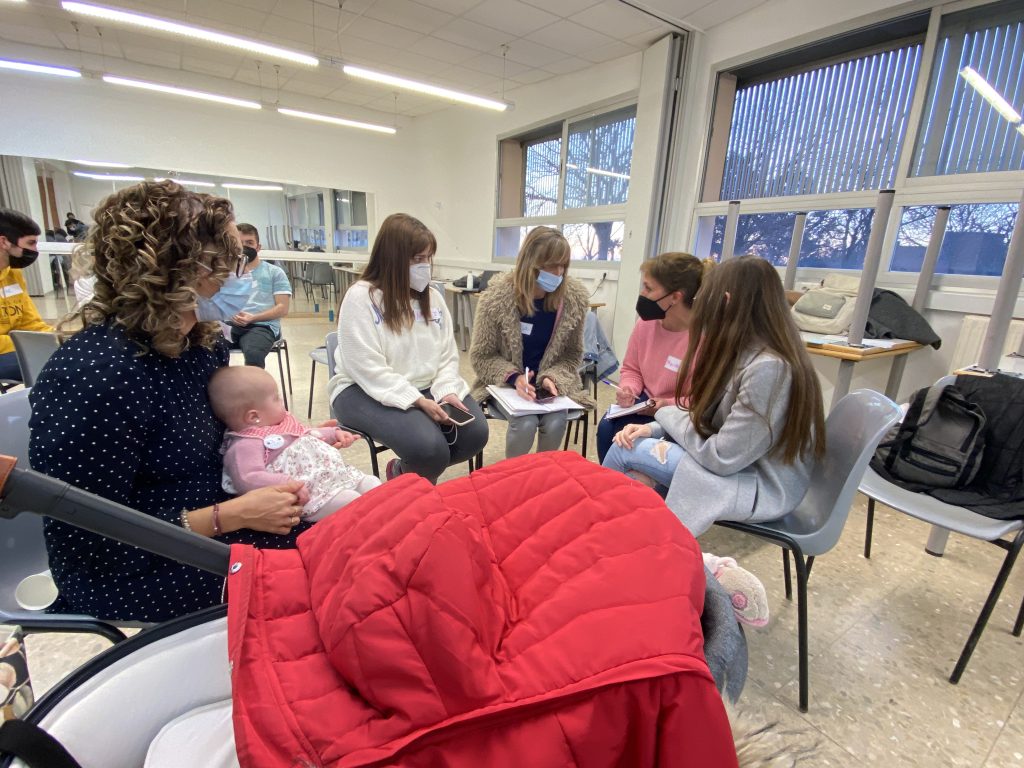
The final part of the workshop focused on collecting hands-on experience in using the local DRT service, seeking to understand preferred booking methods, which obstacles citizens face when utilizing the app currently available and which aspects could be improved to make booking procedures easier.
The session was very productive and provided several brainstorming insights for DIGNITY’s evaluation, especially in terms of virtual stops, smart bus stops and last-mile stops. Another brick in the wall towards the development of guidelines for inclusive last-mile services based on local needs and conditions.


